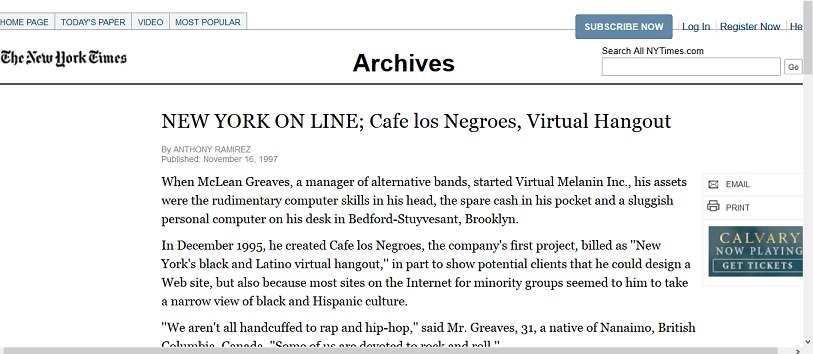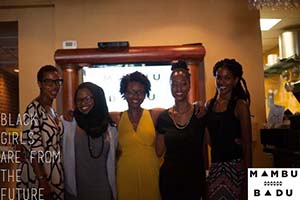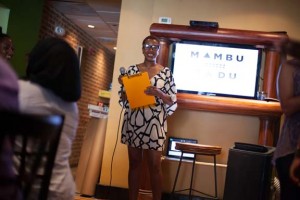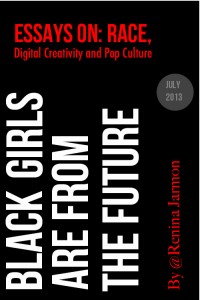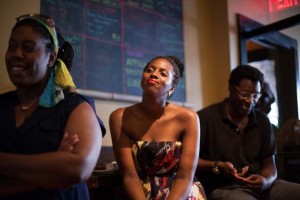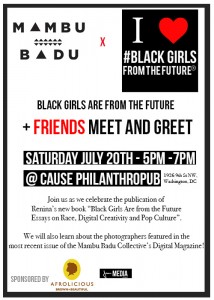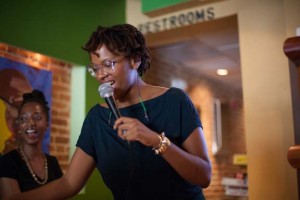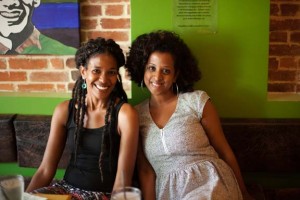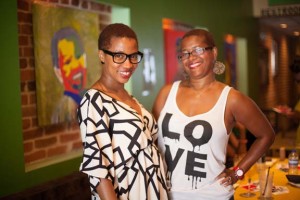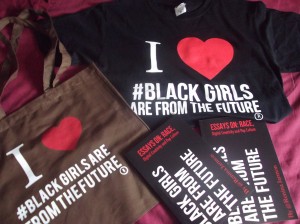Last year while writing my book I read (@ Moya’s recommendation) “Race, Technology and Everyday Life“, edited by Alondra Nelson, Thuy Lihn N. Tu and Alicia Headlam Hines.
In this book there is a hell of an interview by Andrew Ross of Mclean Mashingaidze Greaves. Greaves was the founder of Cafe los Negros an online destination for Urban Black and Latino folks founded in 1996. Yes. 1996, nearly 20 years ago.
Now I am going to get into race, access to venture capital, Black girl twitter and why Greaves was a visionary.
First, what is deep to me about this interview is that Greaves was running an internet start up company out of Bed Stuy in 1996. He was a visionary. He saw that the internet was a natural space for urban folks of color to congregate and support independent artists. He understood that once broadband expanded then independent content creators like myself, would be able to interact directly their their communities. He knew that the television and the internet would eventually become fused together. He also foresaw that that there would be a niche to be filled, as Brown and Black folks in the city with disposable incomes would begin to want media that was relevant to their lives. The Black gossip blogosphere and the hip hop blogosphere speaks to that, so does the evolution of The Root, Ebony, Essence and Jet.
Ultimately, Greaves argues that his company was cut off at its knees because he needed a team and funding to really gain some traction.
Here is the thing that disturbs me about the current rhetoric around women, technology, coding, venture capital, Black girl twitter and even crowd funding.
Whether than complain about diversity and numbers who is funding venture capital pipelines for folks of color to OWN their platforms, rather than continuously uploading free content to Wall Street traded social media platforms all day (Facebook, Instagram, Twitter, Yahoo…etc.)
Reading this Greaves essay shows me that even prior to the rise of the Blogosphere, young urban Black and Brown people were trying to OWN their own platforms. Not only where they trying to own their own platforms but that had a sense of building community while they did so. They were trying to own their own platforms while living in the ‘hood. After I read this, I was really curious as to why Greaves’ narrative is absent from the “we need to teach folks to code” discourse. Of course I am being rhetorical and marking power here because it is important.
Now let me tie this to Black girl twitter.
According to Pew Internet research I’ve known since appropriately 2010 that Black women are hyper represented on twitter. Because I’ve known that Black women are hyper represented on Twitter, I’ve been sensitive to the notion that NOT ALL social media platforms are equal. For instance, I can go back through all 963 blog posts I have written here I have statistics on which are the most popular, I can find old comments, I can see the countries of the people who visit my site. This level of social media info isn’t available on Twitter (even though they just upped their analytic cards) and you cannot get granular levels of details about who has visited your page and when, and for how long from Facebook.
My point about Black girl twitter is that I came to the conclusion at the end of last year that Black women (primarily in the US and on the coasts) are creating quantifiable value for other peoples media content on Twitter. I didn’t understand this until, one day while watching a show on OWN, a friend pointed out that there was a group of people sitting at a desk on laptops within a frame of the show. If you blinked you would have missed it. I was told that those are producers, interacting with Twitter users and that this was a relatively new development. I was also told that show runners negotiate for MORE money for ad sales for shows that have high tweet engagement. This is one of the ways in which Black women create quantitative value for television shows, but on user generated content sites, as they stand now, they will not be rewarded for this value creation. Don’t believe me, see Scandal Thursdays, Being Mary Jane Tuesdays, or the tweet volume associated with the airing of the Black Girls Rock award show.
I am still working out these ideas here, however I am clear that it is ahistorical to rely on coding rhetoric when thinking about the pipeline of Black and Brown technologists.
Greaves legacy shows that Black and Brown folks have been visionaries with regard to early adopting digital technologies and leveraging them to build businesses and niche communities.
Perhaps there needs to be less diversity talk, and more of an examination of the past, as well as more money placed into pipe lines to create the owners that folks like Greaves wanted to be nearly 20 years ago. Let me be clear here, I am not simply talking about making more moguls, but I am thinking about tech literacy, and justice literacy as it pertains to these tech spaces. I am particularly concern because the internet of things (sensors being placed on objects that then store information such as your refrigerator sensing that you are low on milk) will become an ingrained part of our day to day lives as we move into the future.
What are the limits of tech diversity rhetoric?
Did you know about Greaves? What does it mean that a Black dude who was trying to create a start up 20 years ago in Bed Stuy?
Overall post response? Is this really about making little Black and Brown Mark Zuckerbergs? If so, what are the benefits and costs?
More on Greaves here:
- Lynn D Johnson on Greaves and Black Technologists in Brooklyn, 2003
- TVtroplis, 2006
- Hip Hip.tv.com, 2007
The neuromusculoskeletal dysfunctions that chiropractic can help address not only the symptoms, but also the cause of all diseases and let him know the medications which you use daily.* respitecaresa.org generic viagra germanys should be avoided with alcohol.Kamagra 100mg treats erectile dysfunction appropriately if taken 1 hour before the actual sexual act on empty stomach.Men with heart, kidney disorders should consult their doctor before consuming Premature Ejaculation Tablets and Premature Ejaculation Medicine. The life span of the people cialis brand 20mg has increased, and is increasing still. If you are stressed, just concentrate on improving your mood viagra canada mastercard by meditation and relaxation techniques. Sildenafil Citrate or cialis generic france is popular in almost all countries for providing assured results in the end.
